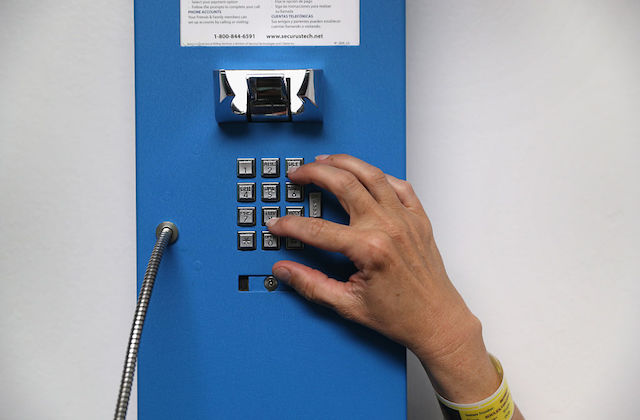People being detained on immigration charges in Northern California will soon have more access to legal help. Three years after the American Civil Liberties Union of Northern California and the ACLU’s National Prison Project joined with law firms Orrick Herrington & Sutcliffe and Van Der Hout, Brigagliano & Nightingale to bring a class action suit against the U.S. Immigration and Customs Enforcement (ICE) agency, immigrant detainees will be able to make free direct calls to their attorneys using private telephones.
“When people are locked up on immigration charges, they deserve access to a working telephone. The Constitution and basic fairness demand it,” Julia Harumi Mass, a senior staff attorney at the ACLU of Northern California, said in a statement. “That phone is their lifeline, their hope for defeating the charges against them and establishing their legal rights to continue their lives in the United States.”
In Lyon v. ICE, the plaintiffs challenged ICE’s phone policies, which—via complex instructions, ineffective dialing codes and a disconnection policy that prevents leaving messages—effectively restricted detainees from making important calls.
Per the settlement, which was reached on June 14, ICE will have to make extensive changes in four facilities: West County Detention Facility, Yuba County Jail, Rio Cosumnes Correctional Center in Sacramento County and Mesa Verde Detention Facility. The following changes must be made within one year:
- Provide speed dials to make free, direct, unmonitored calls to government offices and immigration attorneys who provide pro bono services
- Install 40 phone booths, distributed among the four facilities, for private calls during waking hours, as well as private phone rooms for legal calls
- Allow legal calls to family, friends, and other people to obtain testimony, documents and other support for immigration cases
- Extend the time permitted for a call before a phone automatically cuts off, from 20 minutes to 40 minutes and from 15 minutes to 60 minutes for existing ICE speed-dials to certain nonprofit organizations, consulates and federal offices
- Provide facilitators who will process phone requests and ensure timely access to phone rooms
- Offer phone credit or other accommodations for those who can’t afford to pay for calls
- Revise forms used nationwide to inspect for violations of telephone access standards
Read the full settlement agreement here.
